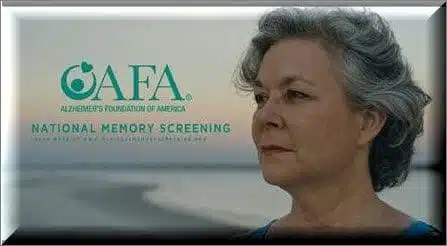For Better, For Worse: How to Cope When Young-Onset Alzheimer’s Disease Enters the Picture
Posted in Young-Onset Alzheimer’s Disease
The following article was provided by the Alzheimer’s Foundation of America (AFA) for the benefit of the SelectCare community and written by AFA licensed social worker Heather Saposnick. Heather has 10 years’ experience working in the geriatric field, including in nursing homes. Heather’s passion is assisting individuals and families living with dementia.
Many of us have been there. You find “the one,” you get married, repeat the vows – for better, for worse, in sickness and in health, and embark on all the adventures life has in store: travel, careers, raising a family…And then one day, it happens. We learn that for better, for worse, in sickness and health are not mere words, but real-life scenarios. And for a growing number of Americans, one of those scenarios is young-onset Alzheimer’s disease. 
Young-onset refers to the variation of Alzheimer’s disease that impacts individuals prior to the age of 65. Similar to the later-onset variation, individuals living with young-onset may experience memory impairment and difficulty with language and judgment. Unlike someone who is diagnosed after the age of 65, people receiving this diagnosis in their 30s, 40s, 50s and early 60s are often employed or on a career track, have children, and myriad other responsibilities, such as mortgage payments and saving for their children’s college education. In short, young-onset Alzheimer’s can strike right in one’s prime.
In many families, each member performs certain roles that help keep the family unit functioning. When someone—particularly a spouse—becomes ill, such roles may need to shift, as many other family members’ expectations. This shift can be particularly perceptible when other factors, such as caring for an older parent and for children are also part of the picture. The individual with young-onset dementia and their spouse may suddenly face the following:
- Unplanned loss of income
- Taking on the roles of both spouses
- Changes in employment
- Helping children adjust to their new “normal”
- Keeping the spouse with this illness remain active and engaged
In addition, a diagnosis of young-onset Alzheimer’s disease can trigger a wide range of emotions, including anger, disbelief, confusion and frustration, in both the individual living with the illness and their spouse. Such feelings can make it difficult to be proactive and take the steps to put care plans in place.
Education and support are vital in transitioning into these roles. Licensed social workers can provide referrals to resources for to help put legal and financial plans in place that can help the family now and in the future. They can also help facilitate discussions about long-term care and end-of-life care wishes, which can take the guesswork out of making decisions without the person’s input when cognitive symptoms progress. Connecting with others also can be helpful. Talking with peers can be cathartic and reinforce that you are not alone.
On September 7, the Alzheimer’s Foundation of America (AFA) is kicking off a six-week telephone-based support group specifically-tailored to spouses of individuals with young-onset Alzheimer’s disease. The group, facilitated by a licensed social worker, will provide education, as well as help identifying resources, navigating role changes, managing stress, and understanding that it’s OK to ask for help. The group will meet from 4-5 p.m. EDT. Registration is required and space is limited. To reserve a spot, call AFA’s national toll-free helpline at 866-232-8484 Mon-Fri 9 am to 9 pm (EDT) and on Saturday from 9 am-1 pm (EDT) or by e-mail at info@alzfdn.org.
